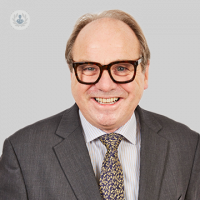Alcoholic liver disease and alcohol dependency
Written in association with:New government guidelines recommend that both men and women should not drink more than 14 units of alcohol per week. However, many people drink more than this regularly and have done so for many years.

The risks of excessive drinking
The risks associated with drinking alcohol excessively include the development of alcoholic liver disease, increased risk of cardiovascular disease, high blood pressure, strokes, chronic pancreatitis, pancreatic cancer, as well as a doubling of the risk of developing breast cancer, and a five-fold higher risk of developing throat cancer. It is estimated that 9% of men and 3% of women are alcohol dependent. If you have an alcohol addiction you may find that drinking has become an important, or perhaps the most important, factor in your life and you may feel unable to function without drinking.
Who is at risk?
In general it is only people who drink excessive alcohol regularly for many years that develop alcohol-related liver disease, but everyone is different. Some people drink vast amounts of alcohol and have an unscathed liver, while others develop alcohol-related cirrhosis after a few years of less heavy alcohol consumption. The risk factors seem to lie in our genes, as well as our sex (women are more susceptible to alcoholic liver disease than men).
Good news!
The good news is that if you stop drinking early enough, your liver shows an immense capacity to recover. Studies have shown that people who drink an average of 35 units per week, who then go on a one-month alcohol detox, experience improved blood pressure, cholesterol, blood glucose, liver function tests and liver stiffness as assessed by Fibroscan. Importantly their sleep and concentration also improved, and they also lost weight. If there was a drug that could do all of this it would make a fortune!
If you are worried about your liver, our Top Doctors liver specialist, Professor Kevin Moore can see you for a full check-up - the Liver Health Screen. He also works closely with a team of therapists who can provide one-to-one counselling to help you deal with any alcohol dependency issues.


